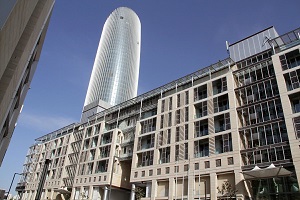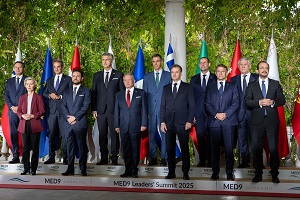Jordan advances 'structural' economic reform amid regional volatility

The Jordan Times
AMMAN — Jordan is executing a broad-based restructuring of its economy, marking a "deliberate" pivot towards fiscal consolidation, investment-led growth and sectorial modernisation, stakeholders said.
The Kingdom’s strategy aligns with Economic Modernisation Vision (EMV), focusing on macroeconomic resilience, private sector empowerment and integration into global trade and technology network, Jordan News Agency, Petra, reported.
After years in which sluggish growth was attributed to external shocks, Jordan is now recording "tangible" domestic expansion, underpinned by a combination of structural reforms, strategic capital projects and targeted fiscal measures.
GDP growth reached 2.8 per cent in the second quarter of 2025, up from 2.4 per cent in 2024, reflecting the impact of nearly 220 policy interventions aimed at stimulating investment, enhancing productivity, and stabilising key macroeconomic indicators.
Strategic investment pipeline
The government plans to launch some $10 billion in flagship projects by 2026, focusing on water security, renewable energy and transport infrastructure.
These capital-intensive projects are designed to serve as both a growth catalyst and an anchor for broader structural reform, including industrial diversification and job creation.
In his mandate to Prime Minister Jafar Hassan, His Majesty King Abdullah stressed that "strategic projects must lead the government agenda", underscoring their "centrality" to Jordan’s long-term economic trajectory.
Fiscal discipline remains a "core" pillar of the government’s strategy.
His Majesty had stressed the need for countercyclical fiscal management to maintain debt sustainability, safeguard macroeconomic stability and preserve policy space for accelerated growth and structural modernisation.
Policy execution and governance
Observers note a "marked" shift towards execution-oriented governance, with the EMV now serving as a guiding framework rather than a planning document.
Former minister of economy Youssef Mansour said: "A government anchored by a prime minister with deep macroeconomic insight is able to synchronise policy implementation effectively, balancing pragmatism with strategic vision.”
Policy consistency and credibility have been central to sustaining investor confidence. Nearly 220 policy measures implemented in 2025 have contributed to an uptick in growth, job creation, and sectorial performance.
Construction, agriculture, tourism, and digital services have recorded "above-trend" activity, highlighting the economy’s gradual structural realignment.
Raad Tal, a professor of economics at the University of Jordan, highlighted that Jordan has transitioned from a reactive, externally constrained growth model to a proactive, policy-driven expansion, even amid regional shocks, including the Gaza conflict and tensions in the Middle East.
He projected that if current reform momentum persists, Jordan could exceed 3 per cent GDP growth, its "highest" sustained expansion in over a decade.
Private sector and market signals
Private sector confidence has boosted amid regulatory predictability and measured fiscal reforms, CEO of the Jordanian Businessmen Association Tariq Hijazi said, citing an 8.1 per cent year-to-date rise in exports, driven by pharmaceuticals, fertilisers and digital services.
He urged accelerated project execution and “deeper” private sector integration to translate policy vision into tangible growth outcomes.
Economic analysts also highlighted the stabilising impact of prudent fiscal policy, including adjustments in taxation and sector-specific incentives, which have mitigated external shocks while reinforcing Jordan’s investment climate.
Hossam Ayish, economic analyst, noted that the government’s consultative and transparent approach has enhanced stakeholders’ confidence and created a participatory policy ecosystem, linking the modernisation agenda to daily policy execution.
Latest News
-
 'Come back quick': Supporters cheer Sarkozy as French ex-leader goes to jail
'Come back quick': Supporters cheer Sarkozy as French ex-leader goes to jail
-
 Trump says MidEast allies ready to 'straighten out Hamas' if asked
Trump says MidEast allies ready to 'straighten out Hamas' if asked
-
 Britain deploys troops to 'Israel' to monitor Gaza ceasefire
Britain deploys troops to 'Israel' to monitor Gaza ceasefire
-
 King attends MED9 Summit, calls for joint action to ensure commitment to Gaza agreement
King attends MED9 Summit, calls for joint action to ensure commitment to Gaza agreement
-
 Lavrov and Rubio discuss Putin-Trump summit, Zelensky seeks invite
Lavrov and Rubio discuss Putin-Trump summit, Zelensky seeks invite